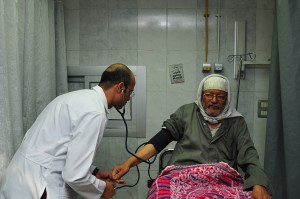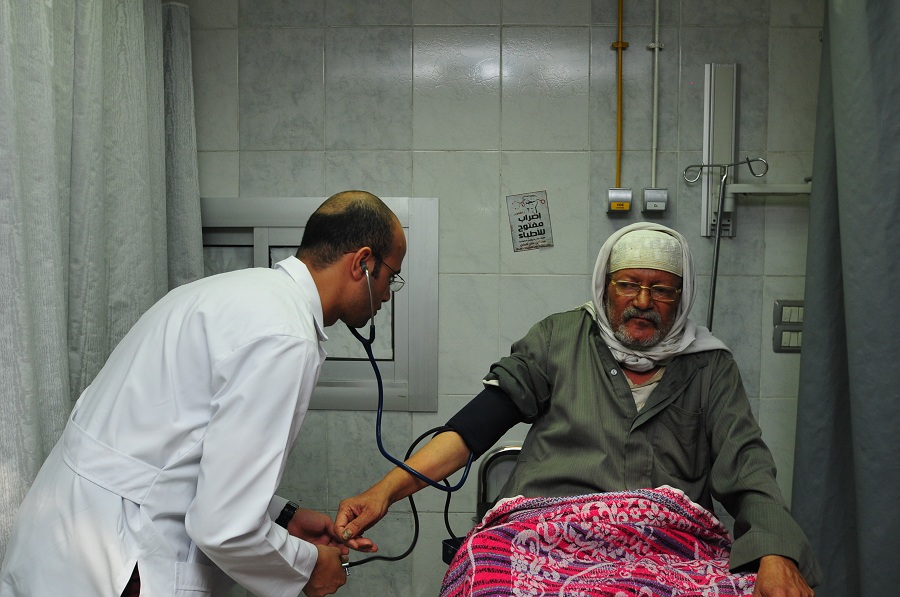
(Photo by Hassan Ibrahim / DNE File)
The health ministry will focus on providing citizens with “safe treatment”, being a given right to any patient regardless of their financial status, new Health Minister Adel Al-Adawi told state-run Al-Ahram.
Al-Adawi was sworn in as the new health minister on Saturday, as part of new Prime Minister Ibrahim Mehleb’s Cabinet. He has replaced Maha Rabat.
Al-Adawi told Al-Ahram on Sunday the ministry is prioritising issues regarding emergency and ambulance services. He said different diagnoses and diseases in the emergency room would be encoded to enable citizens to receive treatment upon providing their national identification cards. The code would reveal the cost of such treatment, which is to be reimbursed by the health insurance sector or the state.
In a health ministry statement released on Sunday, Al-Adawy added that the ministry will also focus on creating a new “comprehensive” health insurance system.
Article 18 of the newly-passed constitution states that citizens have a right to healthcare which abides by international standards, and obliges the state to allocate at least 3% of Gross National Product (GNP) to health issues, with the caveat that the percentage should gradually increase. The article also obliges the state to create an “inclusive” health insurance system to cover all diseases, to be regulated by the law.
Emtiaz Hassoona, board member of the Doctors’ Syndicate, had earlier applauded both clauses of the article, “should they be implemented by the state.” She nevertheless pointed out that the health sector needs around 8% of the state budget to cover the entire population.
The Doctors’ Syndicate held eight single-day partial strikes in 2014, demanding the passing of the draft Staff Law, reforms to Egypt’s crumbling healthcare system and pay raises. The doctors have also decided to begin an open-ended strike on 8 March. In addition to the strike, the syndicate will also be collecting mass resignations, which will be handed in to the ministry once their number reaches “a critical number of 20,000”, according to Hossam Kamal, rapporteur of the syndicate’s media committee.
Representatives from the syndicate met with Mehleb on Thursday upon his request. According to a syndicate statement, the new prime minister expressed his interest in the doctors’ strike and promised to organise a meeting between the strike’s committee and the health minister. Members of the strike’s committee have declined Mehleb’s invitation to attend Thursday’s meeting.
In a general assembly meeting held two weeks ago, the Doctors’ Syndicate demanded the dismissal of former Health Minister Rabat because she “deliberately humiliates doctors and stands against their rights”. The syndicate had also decided to refer the former minister to the disciplinary committee for investigations.

